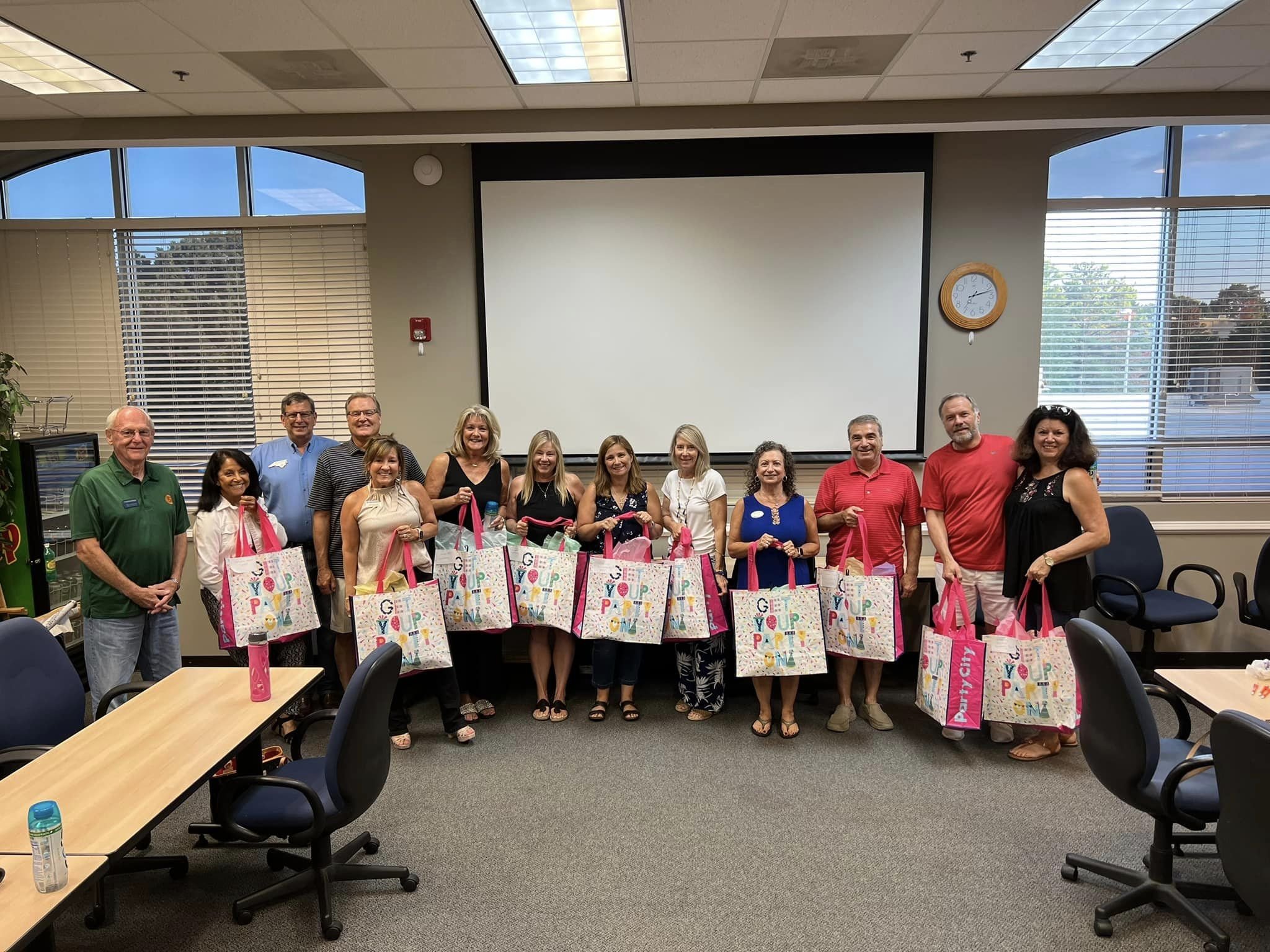National Project- Prevention of Child Abuse
The National Exchange Club officially adopted the prevention of child abuse as its National Project in 1979 at the 61st National Convention.
Exchange provides a variety of public awareness materials, designed to help inform and increase awareness of child abuse and how it can be prevented. These are used in conjunction with Exchange Clubs and Exchange Club Centers for the Prevention of Child Abuse.
Additionally, Exchange supports and engages in a number of annual activities designed to heighten awareness of child abuse and its consequences. Through participation in National Child Abuse Prevention Month each April, National Headquarters in Toledo, OH, and local-level clubs across the country work with government agencies, local and national partners, and their communities to draw awareness about prevention of this social crisis. Specially-designed materials are made available at this time of year, including action-oriented Exchange Today articles, all intended to help Exchange Clubs, members, and communities work to prevent child abuse.
The Exchange Club of North Meck supports Pharos Parenting in their efforts to support parents and youth.
Making Birthday Bags for Pharos Families
Assembling new parent take home bags
Exchange Parent Aide Model
The organization’s most significant and successful method of countering child abuse is by working directly with at-risk parents through its signature program, the Exchange Parent Aide home visitation model. Through coordination with a nationwide network of community-based Exchange Club Centers for the Prevention of Child Abuse, the program has helped more than 691,120 families break the cycle of violence, thus creating safer homes for more than 1,727,800 children.
Exchange Parent Aide evolved from the knowledge and experience of the dynamics surrounding child abuse and neglect. It is based on the work of Sharon Pallone in Little Rock, Arkansas, as well as research and concepts first introduced by Drs. Ray Helfer and Henry Kempe, 1960s pioneers in the field. Their leading research on the battered child syndrome expressed belief that most parents who abuse their children are not psychotic and were likely to have been abused themselves as children. Most abusive parents grew up without positive role models for good parenting and often have difficulty developing healthy and trusting relationships.
To ensure compliance and current practices associated with the model, Exchange provides training, accreditation, technical support, development and management guidance, and other supportive services to sites utilizing the Exchange Parent Aide program.
Parent Aides are trained, professionally supervised individuals (paid and volunteer) who provide supportive and educational, in-home services to families at-risk of child abuse and neglect.
Exchange Parent Aides act as mentors and provide intensive support, information, and modeling of effective parenting — all in the home of the family. Services are family centered and focus on:
Parental resilience is developed through teaching problem solving skills, modeling effective parenting, providing 24/7 support and referrals to services.
Knowledge of parenting and child development is encouraged and developed through sharing skills and modeling strategies. Individualized help is provided in the home with the children.
Social connections are developed and fostered through social-support, building the individual relationship and connecting the parents to others through group meetings, activities, and referrals.
Social-emotional competence of children is developed through strengthening of the nurturing capabilities of the family; interaction of parents with the children is observed and modeling is provided for support of the children’s competence.
Ensuring safety of the children, including attention to medical, dental, and mental health care needs, as well as safe housing and freedom from child abuse, neglect, and domestic violence.
The Exchange Parent Aide program has been replicated since 1979, in more than 80 communities throughout 28 states and in Puerto Rico. It is utilized in rural, urban, and suburban areas, serving diverse populations in a culturally-responsive manner. Additionally, a recent randomized controlled study indicates significant impact through reduced maternal stress, maternal depression, and maternal anxiety; increased parental mastery; and reduced psychological aggression and physical assault toward children.
Exchange was awarded a Presidential Award from the White House Office of Private Sector Initiatives. The organization is also charter member of The National Child Abuse Coalition and is a Partner in Prevention with the Children’s Bureau, Administration for Children and Families, U.S. Department of Health and Human Services.




